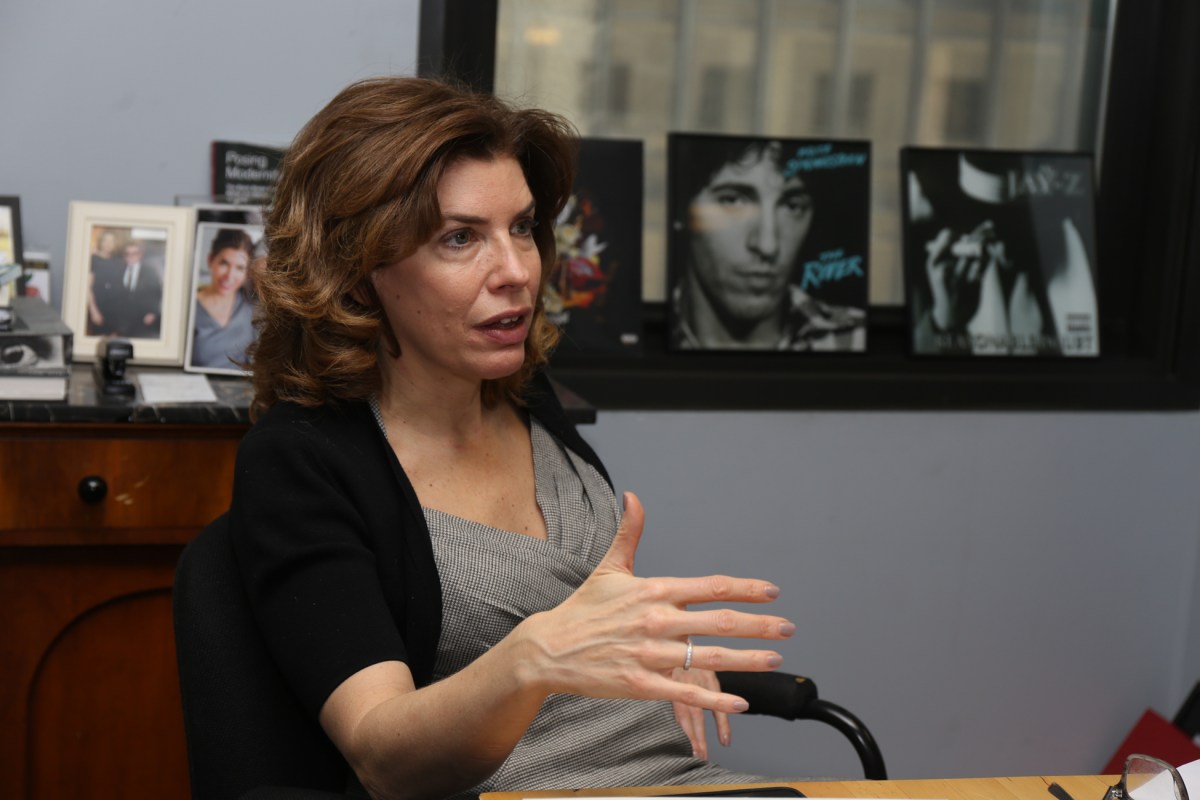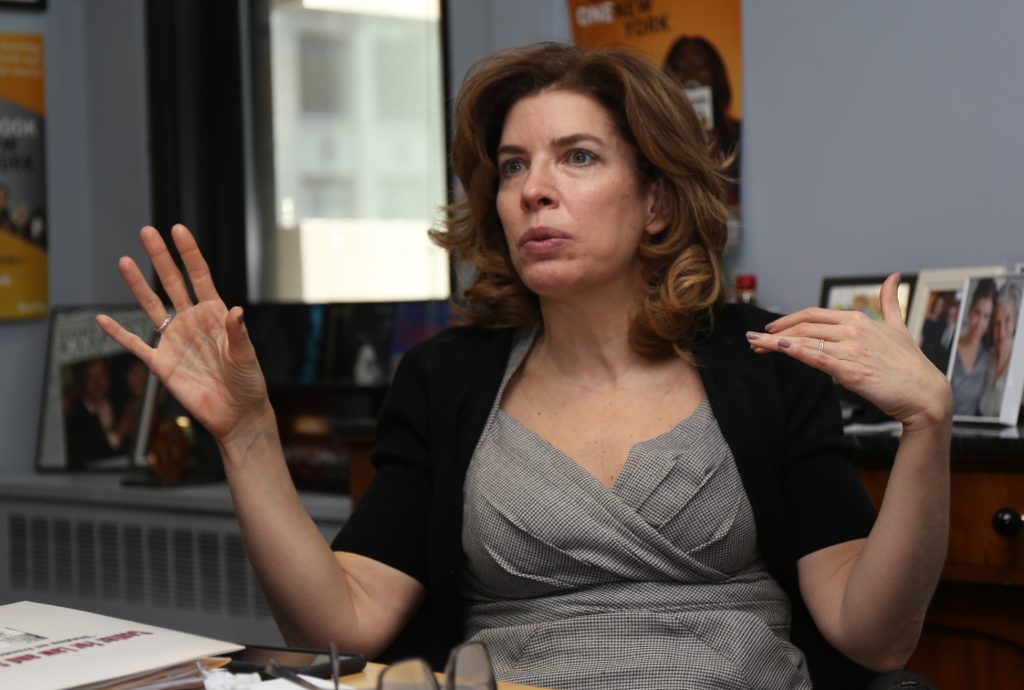
BY LINCOLN ANDERSON | Julie Menin’s star has kept rising since her days leading Lower Manhattan’s Community Board 1 as its chairperson in the aftermath of the devastating 9/11 attack.
Now Menin’s civic career is poised to reach yet another highpoint as she shoulders critical new responsibilities — ones that will see her confronting the policies of the Trump administration head on.
Namely, on Feb. 1 Menin was appointed both Census director of New York City and executive assistant corporation counsel for strategic advocacy.
In a wide-ranging interview at her office in the Ed Sullivan Building, Menin explained her new roles, and their importance at this key moment in time.
She’ll be moving to another office soon, but for now is still in the Theater District since she was until just recently commissioner of the Mayor’s Office of Media and Entertainment.
As Census director, or “Census Czar,” as she’s been dubbed, her new job will be to ensure that every city resident is counted. The population tally affects not only how many congressional representatives the city — and, thereby, the state — is allotted, but also how much funding New York gets for essential services and programs.
Right now, though, a legal battle is being waged on whether the Census can have a citizenship question. Menin said the intent of the question — which last appeared on Census forms more than half a century ago — is clear: to create fear, plus withhold critical funding from blue states, and shift it to red ones.
“We stand to lose two seats statewide in an undercount,” she stressed, adding, “It’s really a push by the Trump administration to change the makeup of the Electoral College. I honestly believe the stakes could not be higher around this Census.”
The question was hastily added by Commerce Secretary Wilbur Ross, who claimed the Justice Department requested it to help enforce voting-rights laws.
“It’s an attempt to repress the response in communities of color and immigrants across the city,” Menin charged. “The city is 38 percent immigrant. We’re a city of immigrants. When you ask someone, ‘Are you a U.S. citizen?’ We know what this is about.”
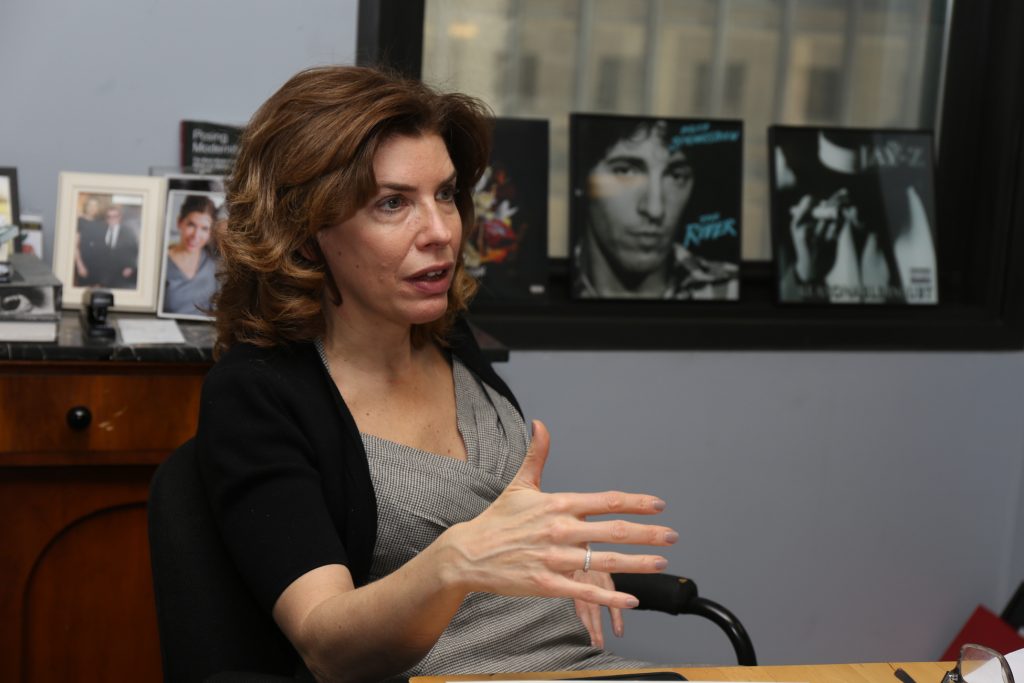
Accurate Census data is used to formulate federal funding allocations for everything from programs like SNAP and WIC — for supplemental nutrition for low-income families — to the amount of vaccine for disease outbreaks New York City gets, to money for local senior centers, emergency preparedness, even coastal-resiliency projects.
“There’s a pie, which is $700 billion of federal funding, and everyone is fighting for their share of it,” Menin explained. “So by asking a citizenship question, it fundamentally hurts blue progressive cities like New York City.”
Plaintiffs challenging the citizenship question include Menin’s New York City Law Department (also known as the Corporation Counsel) and the New York State attorney general, as well as other states and municipalities.
Because the case must be settled by June to meet a Census deadline, the Trump administration has asked to bypass the Appellate Division and appeal directly to the Supreme Court.
A 277-page ruling on the case last month by U.S. District Court Judge Jesse Furman “lays a clear road map for the Supreme Court to strike it down,” Menin said of the citizenship query.
“Judge Furman’s ruling could not have been stronger,” she said, noting the judge slammed the Trump administration’s last-minute move to add the citizenship question as “arbitrary and capricious.”
If the citizenship question remains on the Census form, however, Menin’s office will lead an intensive citywide effort to reassure immigrants they can fill out the document without fear of retribution.
“We’re going to organize the largest outreach on the Census in New York City history,” she vowed. “TV, radio, print [media], social media…then door-knocking, phone-banking. We will be setting up offices all across the city.”
The city would partner with community groups and faith-based leaders, labor and civic groups and community boards to get the message out, Menin said.
A key part of that message, she noted, would be that Title 13 bans the U.S. Census Bureau from sharing Census data — specifically, people’s personal information, such as Social Security numbers or addresses — with other agencies. Census Bureau employees are sworn for life to protect confidentiality. Anyone who violates that law can face a federal prison sentence of up to five years, a $250,000 fine, or both.
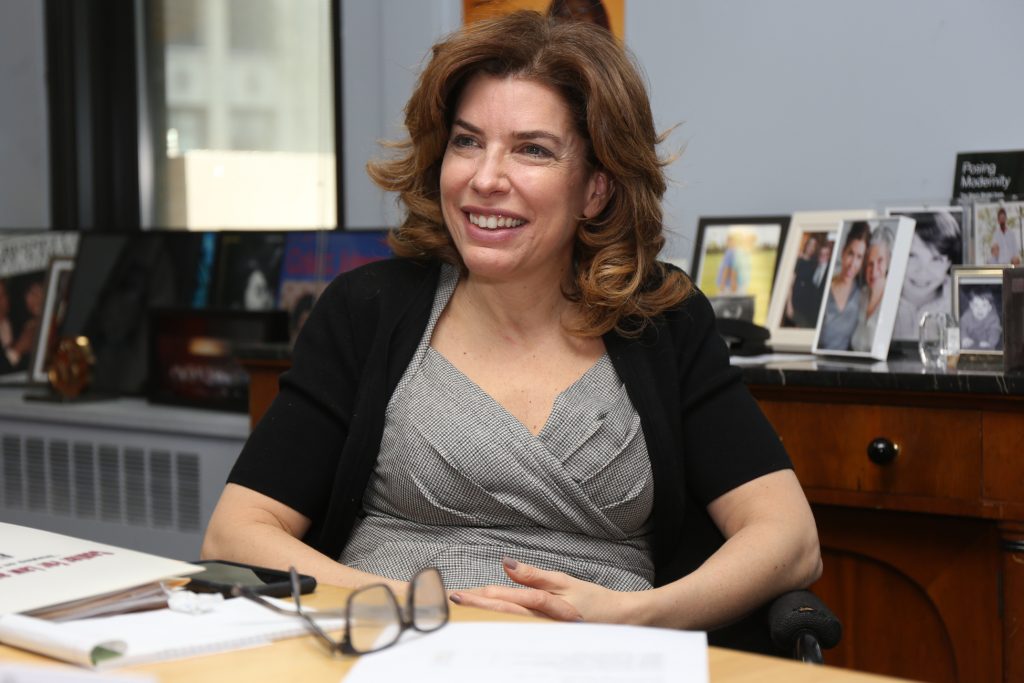
In addition, for the first time ever, people will now be able to fill out their Census forms online. Under this process, in March 2020, people will first get a mailing containing a computer code they can use to complete the Census online. As people fill out the digital forms, it will provide “real-time data,” Menin noted.
“We can see which communities aren’t filling it out, and can target them,” she said.
There will be several mailers sent out from March to May, and one will be the hard-copy form, for individuals who have not submitted an online form. Census responses are due by end of July 2020.
Manhattan’s Washington Heights and Inwood, both with a large Hispanic immigrant community, have boasted among the highest Census response rates in the city.
“Why?” Menin said. “Because, for years, they have organized people to respond.”
For the last Census, in 2010, Washington Heights had a 78.5 percent “mail return” response rate while Inwood had a 77 percent response.
Meanwhile, Battery Park City’s last Census response rate was only 61.6 percent, while, similarly, in Soho/Tribeca/Civic Center/Little Italy it was 61.4 percent, and in the East Village, 62.6 percent.
The West Village’s Census response rate in 2010 was a bit better, at 66.8 percent, and it was 67.2 percent in Hudson Yards/Chelsea/Flatiron/Union Square, while the Lower East Side had a 70.7 return rate.
The always engaged Upper West Side had a strong 76.3 percent return rate.
“It is about community organizing at its grassroots,” Menin stressed of the higher Uptown numbers. “The Downtown communities’ response rate has not been that great.”
In fact, the citywide response rate for the 2010 Census was 59 percent, while the national rate was 71 percent.
The second new hat Menin is wearing — executive assistant corporation counsel for strategic advocacy — will similarly see her going head to head with Trump and Co. Notably, Trump has weakened critical consumer protections, which must be restored, so that’s definitely going to be one battle, she said. In general, she’ll be working to respond to any Trump actions that could hurt the city.
Menin is enjoying using her legal skills once again in her new role with the Corporation Counsel.
Originally from the Washington, D.C., area, she came to New York to attend Columbia. She then got her law degree from Northwestern before returning to the city.
“I love practicing law,” she said. “It’s wonderful getting back to that.”
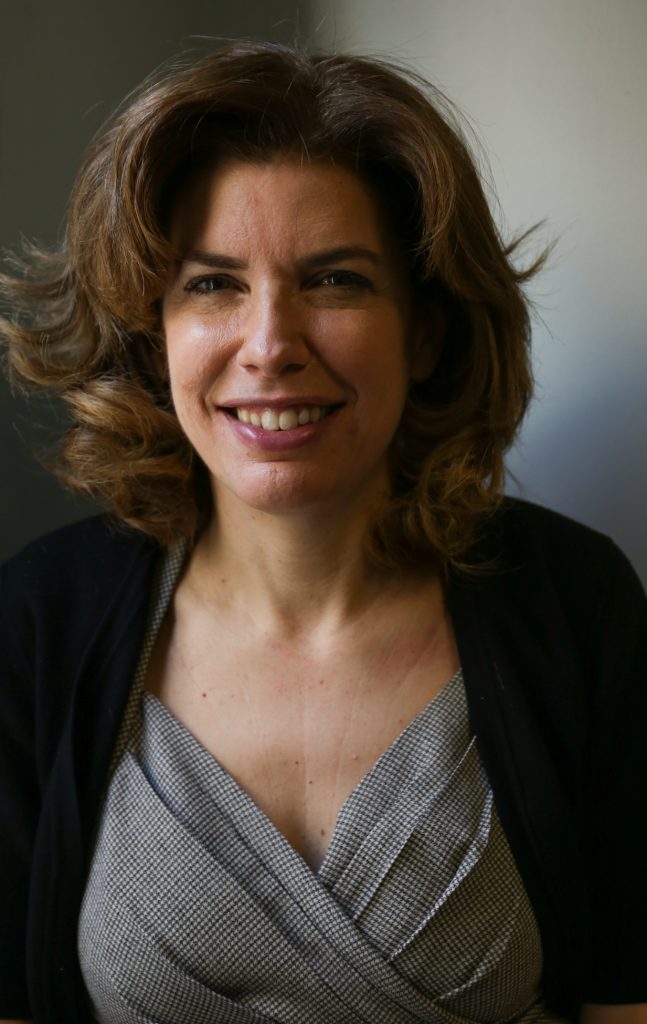
Of course, she’s best known locally for her two decades of community activism and civic engagement.
“My heart is always with the community,” she said.
She said she’ll always treasure the seven years she chaired C.B. 1, from 2005 to ’12, helping lead Lower Manhattan’s rebirth after the World Trade Center attack.
She added that she remains proud, among other things, that C.B. 1 was “out in front” in supporting the “Ground Zero Mosque.”
Ultimately, the ambitious plan ran into funding problems and a much smaller spiritual center was built.
Under Menin, Board 1 also supported the right of Occupy Wall Street to camp out in Zuccotti Park.
Flashing-forward, toward the end of her recent tenure heading MoME, the office of the “nightlife mayor” was created within the agency. Responding to skepticism from Downtown residents, Menin created a community advisory board to provide input.
MoME also oversees permitting of on-location film shoots, another quality-of-life nuissance for many residents. Menin responded to complaints by creating a “Hiatus List” to give relief to areas beset by too much filming.
“There are now over 800 blocks on this Hiatus List,” she said. “It’s a six-month moratorium.”
Before that, as commissioner of the Department of Consumer Affairs, Menin worked to decrease fines on small merchants, among other things.
“When small businesses are being hurt,” she said, “cutting their fines by one-third — that really makes an enormous difference.”
In the past, word was always that Menin was interested in running for City Council, but would not try to unseat an incumbent. She eventually ran for Manhattan borough president, but no one could beat Gale Brewer, the longtime Upper West Side progressive icon.
Asked if she plans to seek office again, Menin answered, “I’m totally focused on the Law Department and doing this work on the Census — we have 18 months.”
However, on Sunday, the New York Post, albeit quoting an anonymous source, reported it’s “an open secret” Menin wants to run for Manhattan district attorney in 2021.
Asked for a response, a Menin spokesperson said, again, “Julie is totally focused on the Census.”
Menin also currently teaches a class at her alma mater Columbia, in its School of International and Public Affairs (SIPA), called “When Cities Take the Lead.” Clearly timely, the course focuses on how cities “get involved” when the federal government is deregulating.
A few years ago, the former Tribeca leader and her family moved to the Upper East Side after Menin’s mother became ill and needed hospital care. She and her husband have four children, their youngest an 8-month-old.
Menin’s grandmother and her mother, then just an infant, hid in a cellar in Budapest and survived the Holocaust. Her grandfather and other relatives didn’t make it.
The horrors her family suffered make her “not sweat the small stuff” in life.
“It informs my life every single day,” she said. “It puts things in perspective.”
Menin said her own family’s experience also inspires her fight for immigrants’ rights, and is why the Census struggle means so much to her.
“This is personal for me,” she said.



